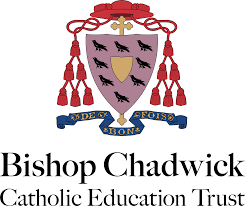Please find our History Curriculum intent, implementation and impact statements below.
Children at St James will understand that History is about real people and real events that happened in the past. We want History to stimulate children’s curiosity about Britain and the wider world. It plays an essential part in preparing us for living and working in the contemporary world and gives us a sense of identity. Children will consider how the past influences the present, what past societies were like, how these societies organised their politics and the beliefs and cultures that influenced people’s actions. As they do this, children will develop a chronological framework for their knowledge of significant events and people. They will see the diversity of human experience and understand more about themselves as individuals and members of society. What they learn can influence their decisions about personal choices, attitudes and values. In History, children find evidence, weigh it up and reach their own conclusions. To do this they need to be able to research, sift through evidence, and argue for their point of view – skills that are very important in adult life. Children should have: The history curriculum has been developed as part of a North East Transition Project, led by Primary Subject Leaders and Secondary Heads of Department. High quality units including lesson plans, presentations and resources have been completed, following the threshold concepts. To ensure high standards of teaching and learning in History, we have tracked the progression of skills throughout each phase. History is taught in Reception as part of the creative curriculum through child-initiated and adult led activities. The children are given the opportunity to find out about past and present events in their own lives, and those of their families and other people they know. In Early Years, History is taught through understanding of the world by beginning with the child’s own experiences. In Key Stage 1 children learn about changes within their living memory and events beyond that are significant nationally or globally. They also study the lives of significant individuals in the past who have contributed to national and international achievements. Where possible, we also link these to the local area. During Key Stage 2 children learn about the changes in Britain from the Stone Age to Iron Age and the Roman Empire and its impact on Britain. They learn about change and continuity in their own area, in Britain and in other parts of the world. They look at history in a variety of ways, for example from political, economic, technological and scientific, social, religious, cultural or aesthetic perspectives. They use different sources of information to help them investigate the past both in depth and in overview, using dates and historical vocabulary to describe events, people and developments. They also learn that the past can be represented and interpreted in different ways. Assessment is used to inform planning and to facilitate differentiation. The assessment of children’s work is on-going to ensure that understanding is being achieved and that progress is being made. Feedback is given to the children as soon as possible, and work is marked in line with the school’s Marking Policy. Impact will also be measured through pupil voice, revisiting and reviewing the curriculum. We want the children to have thoroughly enjoyed learning about History, therefore encouraging them to undertake new life experiences now and in the future. This will be populated as soon as possible.
Early Years
Key Stage 1
Key Stage 2



